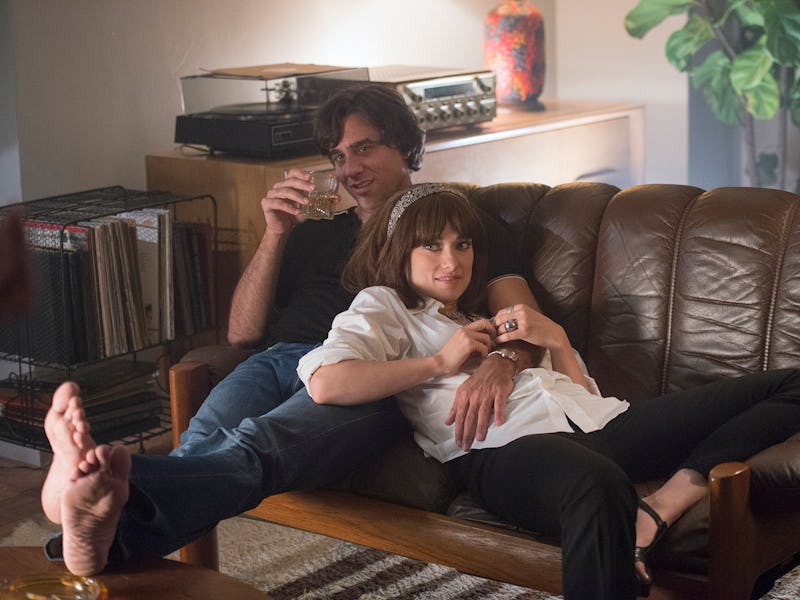Is Bobby Cannavale's Richie Actually Cool? Episode 2 of 'Vinyl' Tries to Convince
The HBO show is predicated on us feeling sympathetic toward him, but so far, it's missing the mark.

“It was electric,” Richie Finestra yells, while being dragged away from harassing the German industry executives; then, a hallucination of a sweaty Jerry Lee Lewis unceremoniously cuts in. It’s not really clear if we are supposed to find Richie Finestra laughable and boorish, or consider him an everyman anti-hero. Probably (God help us) we are meant to see that he’s a troubled genius, not simply someone who’s just competent at his job. Certainly, though, the macho, kneejerk creative process — see the C’mon, can’t you hear ABBA is a millions-seller, motherfuckers? moment in the pilot — doesn’t feel very convincing. The fact that we’re supposed to be enamored of Finestra’s devotion to rock ‘n’ roll with capital Rs is a large part of what makes the show so tough to embrace.
The humor goes only as far as Richie’s cocaine spaz-outs, which take up most of his on-screen time in the show’s second episode. The “hell of a drug” running joke is funny but wildly overdone; watching him break a Jethro Tull record over his knee is fun, but the beatific rants he goes on about the future of music — and the Bruce Lee moves he pulled after calling off the Polygram deal — feel like more than a stretch. This segment is the crucial moment of the episode, and we’re bewildered throughout the whole thing.
The most interesting element of Vinyl is its plot, not its presentation: the push and pull between hedonistic disorder and domesticity, and profitability margins and artistic integrity. The show is set in the record industry’s golden era in terms of financial liquidity, but it doesn’t feel like it. The small section of it the show focused on is troubled, grasping for a sea change in the trends. So, ultimately, it is not as much about this complicated period: It’s focused on an idealized vision of one to come. Punk Rock NYC is predicted and seized upon by the forward-thinking Richie, whose clarity and initiative seems to be only improved by the coke he cops from his receptionist.
In Episode 2, Devin (Olivia Wilde) flashbacks to the beginnings of her relationship with Richie in the art world of the late ’60s, further enhancing the image of him as a man whose business sense was tied to a real understanding of meritorious artistry. In the worst moment of the episode, Richie holds up his finger at a Velvet Underground show: “Hear that? That’s what I mean by the truth.” We’re meant to make him out as a visionary, or the guy who understands what “cool” is — even as he pinpoints and moves with the trends, we never lose track of his Long Island roots.
Bobby Cannavale does the best job he can with the material; it’s really not his fault that the character doesn’t move the needle in terms of our sympathies. Finestra is almost too many things, contradictory to the point that it feels forced — a walking and talking representation of the Scorsesean “There are no true heroes” plot device. Presumably, Finestra’s foibles will undo him. We’re almost counting the hours until they do. But one wonders how much of the blame the writers will place on him when that happens. It will reveal how much Scorsese and co-creator Terence Winter wanted us to like this guy in the beginning. Do we really feel bad enough for the deceased Buck? Wasn’t it Joe Corso who threw him so unceremoniously into a trash-filled ravine? Does it matter?
Things will get better and worse at the same time, and then just worse on Vinyl — when the professional Finestra implodes along with the private one. For as hard as the show’s team tries to make him complicated, Richie still feels very simple: a Scorsese-crime-flick archetype revisited on a show that we didn’t necessarily resort to it. And, unfortunately (I don’t think Winter and the boys meant it this way), he’s way more ridiculous than cool.